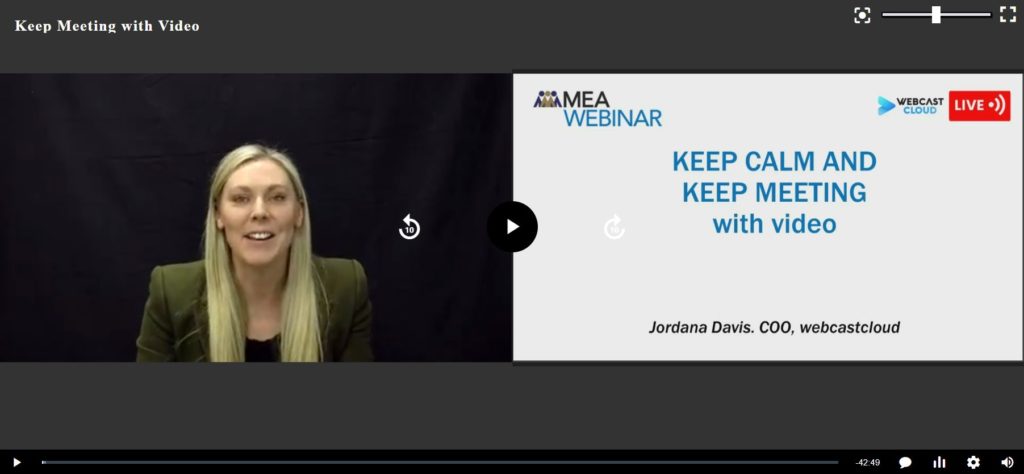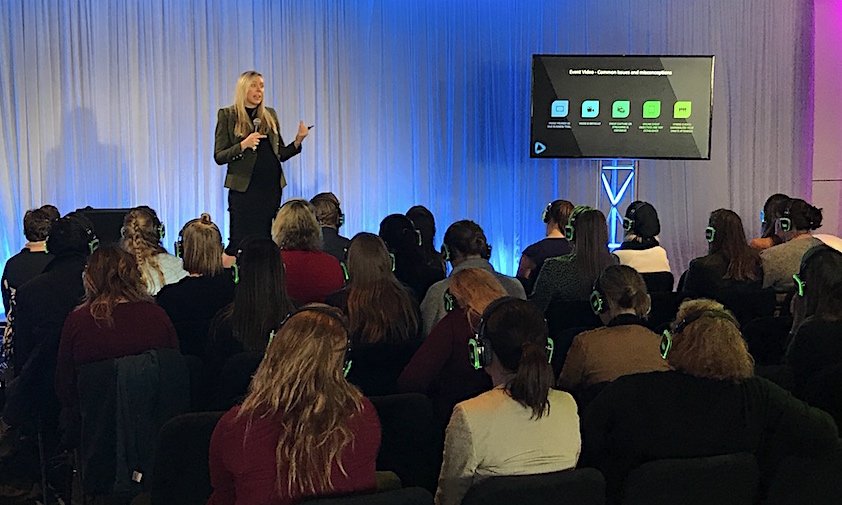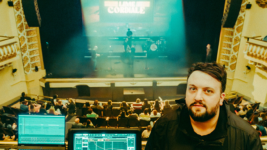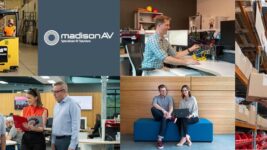News
9 Sep 2020
Jordana Davis. COO webcastcloud
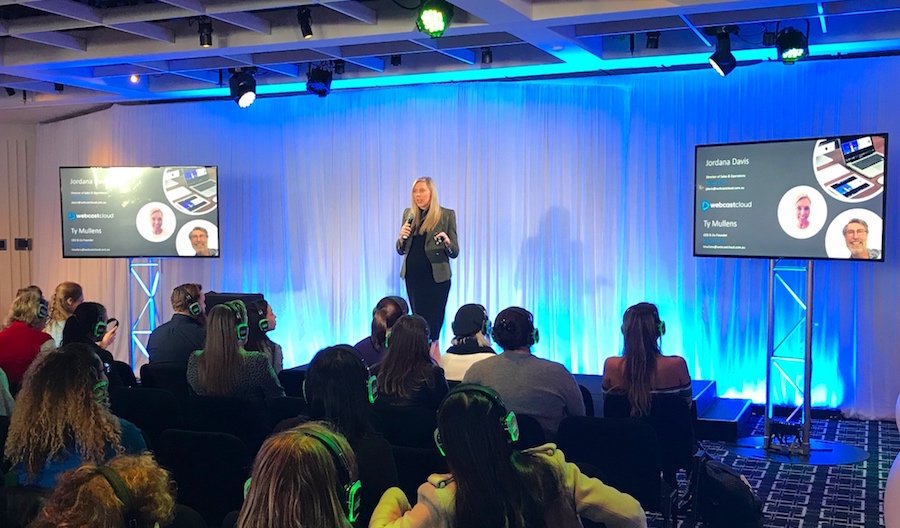
Subscribe to CX E-News
With virtual events and streaming being hot topics right now, I took the opportunity to speak to Jordana Davis, COO of webcastcloud, about her journey into IT, challenges she has faced and the current landscape of the industry.
With a background in Finance, what sparked your interest in working in IT?
At university, I was trying to study and work at the same time. My days were always so jam packed. I remember thinking, how easy would it be if someone could just record the lectures for me. I could then juggle everything so much better.
After uni I worked in Finance and then in Sales across a number of different video technologies – video conferencing, digital signage, and specifically a new-to-market lecture capture video platform, which I became so passionate about. I was gobsmacked about how it could change the way we were educated.
Since then, I’ve had over 15 years delivering video streaming technologies to universities, government, and other market verticals.
How great that it was an idea you had imagined from the outset. You obviously understood the need for it and it must have helped you to understand your market.
We started webcastcloud in 2015. It was initially built for associations and event organisers who wanted to get more out of their event videos. We believed we could deliver a more purpose-built application delivering year-round engagement before, during, and after the event.
webcastcloud is essentially a white labelled video channel. It has allowed companies to create their own branded TED talks or Netflix style channels and also provide multiple ways to monetise video through subscriptions, pay-per-view, and event packages. Essentially, somewhere they can have their own content library and do a lot more than just stream video.
We’ve also looked at ways to integrate with different CRMs and Association Management Software to provide a seamless and secure experience for users. We developed our own product and brought that to market. It’s all-Australian built and supported with all our own infrastructure in Sydney, which is quite rare in this market.
What does your team look like?
We’re an SME working globally. We have a solid team of in-house support and development, with global contractors and channel partners who we use for our events in Australian and overseas.
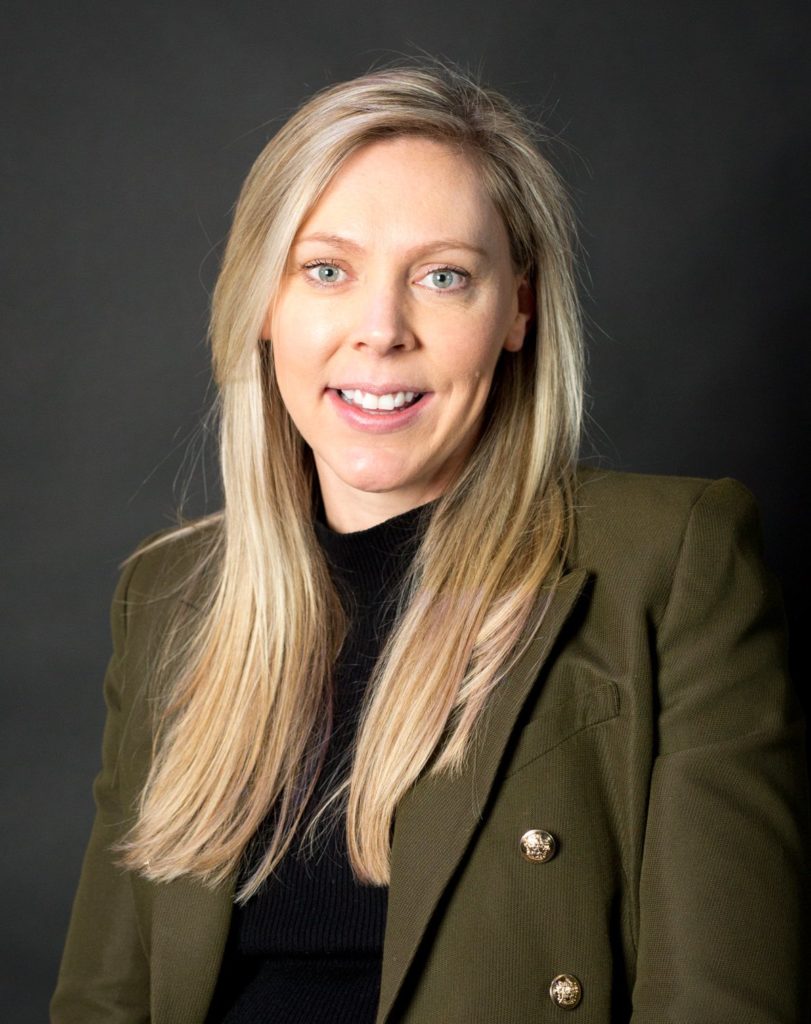
Have you found that business has spiked in the last six months?
It’s been hectic. It started getting busy for us probably as early as February. We started seeing a lot of enquiries coming out of Singapore. And from there we knew it was going to come quickly into Australia. I did a webinar with Meeting & Events Australia and from then I’ve had to open my diary from 5 am every day for about the last four months.
We’ve spent months educating our customers, conference organisers, AV companies and associations on how they can keep their business operating, giving advice, different ways to deliver events online or add value back into membership and associations.
We’re helping a lot of customers – whether it’s to get them through the short term, or a longer-term vision for them.
So for you it’s more than just a platform, you’re investing time in clients and understanding their business and how they can use this opportunity with virtual events to transform their business.
Yeah, absolutely. Changing their outlook to help them see and understand the different ways they can deliver their content. It doesn’t always have to be an in-person event, it might be moving to more of a subscription video model and delivering smaller versions of content year-round, rather than just going for that big bang event with 5,000 people.
Our platform and our technology is very flexible, whether it is a singular event or an entire video strategy. We’re showing our customers ways to move forward.
So with the current climate you haven’t really had to pivot in terms of your product?
Our customers are transitioning and we’re guiding them on the changes required. For us, the key difference is the team that run the events are in our office or they’re working from home with a fully simulated live event – they’re not on-site for a physical event.
We have definitely added functionality to help events run more effectively in a virtual capacity, although we have a very solid platform that has allowed us to help our customers move quickly to a reliable streaming service.
Let’s go back to your transition into IT. Were there any challenges that you faced?
I studied IT at school. It came naturally and I wondered why I didn’t pursue it earlier. I found once I started working in IT, I just got it and I really enjoyed it. I transitioned very quickly out of sales and went into more pre-sales and technical consulting, guiding on deploying and configuring video platforms within a corporate, university, or government network. My role now is mostly focused on product development and strategy.
Early on one of the challenges was being the only female in a very male dominated meeting. I loved seeing how meetings would evolve.
There’d be a room full of AV managers or IT directors and the technical questions were always directed towards the male counterpart with me. Mid-meeting you would see the shift; the technical questions started getting directed to me as they realised I was actually the one with the answers. That surprised look in their face when they made that realisation was great! I loved seeing that shift in the room. I like big challenges; I see them as an opportunity.
Has there been something that you’ve done in particular that’s helped you thrive in what is a male dominated industry?
Taking it upon myself to know my product end-to-end and become a specialist in any technologies I have worked with. I didn’t want to bluff my way through any questions. As a woman I want to be confident in the information I’m delivering. I think knowing your product inside and out, having the passion to educate yourself, and get to that skill level is really important.
You were saying that you have seen a shift in attitude. Do you think you’ve changed or do you think there has been a change in the people working in the industry?
I’m sure there are still some perceptions out there that maybe the female in the meeting isn’t necessarily the technical lead. But I do find that there a lot of other women in meetings that I go to now. So I think times have changed. I don’t think we’re entirely where we should be yet. Hopefully we will see more women coming into those IT director and AV manager roles.
How can we help this?
Promoting our journeys and talking about our successes and our failures. Networking as best we can, sharing and communicating. I think women have always had to make a sacrifice in one way or another. But I think as we move forward there’s going to be flexibility not just for women, but for men too, in the way that we work.
I think people will be a lot more open around their work life balance and how they want to make it work for them. I think that COVID may have some positive impacts for us in that way.
Let’s talk future trends.
Companies like Amazon are bringing out new products on a daily basis that are really easy to tap into and can be integrated into other technology. The personalisation that we see in different platforms is so much more readily available to deliver in products. Organisations need to continually keep on top of that, new trends and new ways that we can bring innovations and ideas to market and evolve our products.
When it comes to events, video is going to become more prominent. I think we’re going to see an increase in engagement features, hybrid and virtual events will start to introduce a lot of gamification. I believe events and streaming are going to evolve quite quickly, features and functionality are going to become key, supporting and elevating events that are running on site or hybrid.
Tell us a bit more about the personalisation side of things.
It’s really about building up knowledge and information about your viewers and what their interests are, building on behaviour patterns that you can then base your recommendations on. We are not just looking at a title and description of video anymore, we can actually look into the video, at what people are saying and what is actually within that video. Video is becoming more personalised, based on more than just basic metadata. The opportunities are endless.
With budgets being tighter now more than ever, what advice do you give people in terms of the need to invest in a streaming service rather than doing it themselves?
Zoom is a great DIY tool. I think it has its place. Those cost-effective solutions really are amazing for education and even daily team meetings and corporate communications. When we start talking events though, they have their fit and their limitations. They work for bringing people into a room, but they might not necessarily work for the online experience for your viewers, for your brand, for the way that you want to monetise your video, for the way that you want to secure and report and analyse that data.
It really depends on what you’re trying to achieve. If you’re promoting a virtual event, and then attendees find out later they just bought a Zoom meeting and they’ve paid $600, even though the speakers might be great, there’s still going to be that element of dissatisfaction, “oh, it’s just a Zoom meeting”.
How will this technology sit in live events post COVID?
Even if there’s a cure 6-12 months down the track, I think there’s still going to be that reluctance to travel, be in big groups and have the scale of events that we’re all used to. It will still take us time to re-adapt. So, in the events industry hybrid is not going to go away.
It’s like education. A lot of it is done online. It will be the same with events, with corporate communications. There’s always going to be that online streaming experience that they can have the option to go to, and maybe just have a smaller on-site audience.
Have you learned anything about yourself or the wider IT community throughout all of this?
There’s a lot more people trying to get into the streaming space. And to be honest, I think there’s enough business for everyone. I think we’re going to see more upskilling. We’ve got partners who are now doing their own thing, and we’re supportive of that, they bring us in as and when they need to.
The more that we all develop and expand, the more that we’re going to have that stabilisation in the economy and in the market, it will help people stay in jobs. We don’t want to see anyone going out of business. To see the impact this has had on the events industry is devastating.
We consider ourselves extremely lucky to be in the position we’re in. I think everyone’s having a lot more compassion and being open to support where they can.
Have you got a superpower?
I’m really good at envisaging complex workflows from end to end, and how that translates from technology to an end user solution or a business outcome. I’m good at mapping all that together, putting everything into one workflow.
Any advice you’d give women wanting to make a start in AV or IT?
Back yourself, do everything you can to upskill. I think there’s so many opportunities, from online education to vendor and manufacturer training out there. Don’t hesitate to ask questions, that’s where you’re going to learn, from that real-life experience. And trust your women’s intuition.
And in reverse any advice you’d give to men to support women coming into the industry?
Mentorship. I think this needs to be across the board for everyone. If there’s any way that you can mentor young and upcoming women to try and keep them in the industry, then give them that opportunity.
Any parting words of wisdom that you’d like to share?
Learn and educate in every way you can. Set your goals and go for them.
To find out more about Women in AV Australia visit:
www.womeninavaustralia.com.au
Instagram @womeninav_australia
Facebook womeninav.australia
CX Magazine – September 2020
LIGHTING | AUDIO | VIDEO | STAGING | INTEGRATION
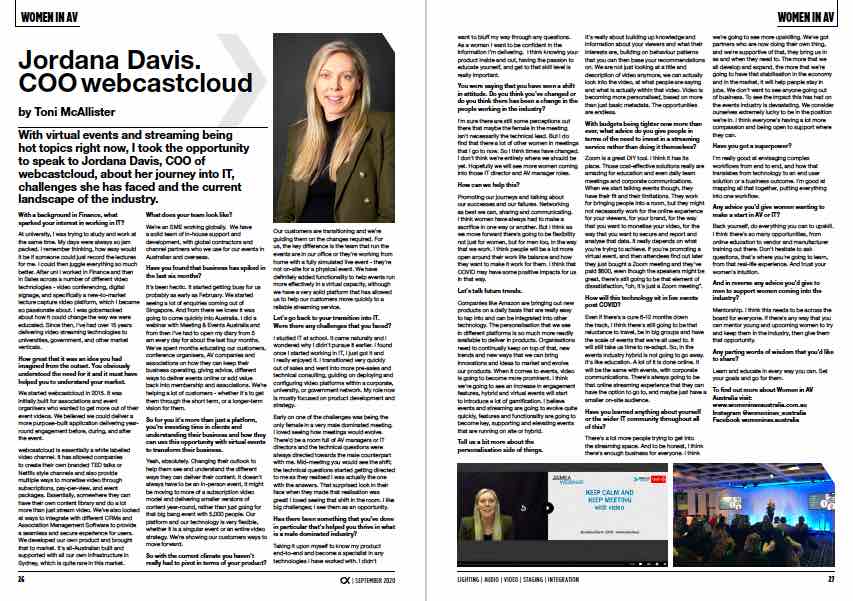
Entertainment technology news and issues for Australia and New Zealand
– in print and free online www.cxnetwork.com.au
© VCS Creative Publishing
Subscribe
Published monthly since 1991, our famous AV industry magazine is free for download or pay for print. Subscribers also receive CX News, our free weekly email with the latest industry news and jobs.

